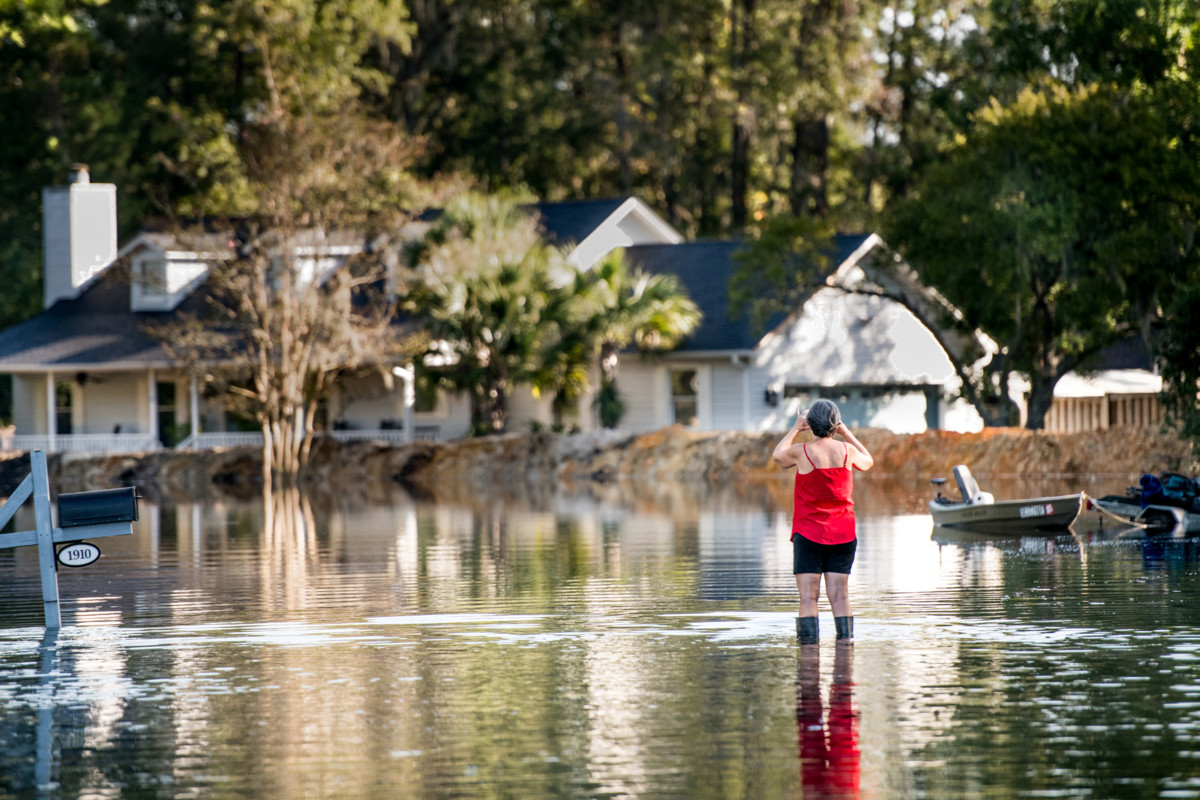Did you know that Truthout is a nonprofit and independently funded by readers like you? If you value what we do, please support our work with a donation.
We don’t have a good count of the combined death toll from last week’s record-breaking catastrophic hurricane, which hit the coast of Florida and large parts of Georgia and the Carolinas. This storm came before many people in South Carolina were able to move back into their homes following Hurricane Florence last month.
A number of deaths have already been reported, but as we know from research on the impact of Hurricane Irma on Puerto Rico, a full accounting may show many more deaths from indirect causes, like heart attack victims being unable to get access to emergency care.
In spite of the fact that hurricanes like Michael, Florence and Irma result in much larger death tolls and enormously more economic damage than domestic terrorist attacks, it is striking that these storms never lead to the same sort of national debate over climate policy as an isolated shooting does over immigration policy and civil liberties.
If any attack can be remotely tied to a practicing or even non-practicing Muslim, we can be absolutely certain that Republicans will scream about the threat of Islamic terrorism. They will call for more restrictions on immigration and demand greater controls on Muslims living in the United States, with little respect for rights granted under the constitution.
In stark contrast, Republican leaders have been deeply resistant to seeing climate tragedies such as the recent hurricanes as an occasion for changes in national policies. Part of the reason for this is that advocates of measures to curtail global warming are generally not as crude in exploiting tragedies to make their point. At a time when people are facing the loss of loved ones and homes, unlike Trump and the “terrorist” screamers, most people are more inclined to focus on helping the victims rather than addressing the underlying factors that make extreme weather events more likely.
The media also tend to enforce this norm. Major news outlets are unlikely to run major columns demanding action on reducing greenhouse gas emissions when the front page has pictures of flooded streets and grieving family members. Politicians raising such demands are likely to be treated with derision.
Unfortunately, the same norms do not apply when there is a killing that might be linked to terrorism. Following such incidents, politicians compete to be the first to denounce the killing and for coming up with the most extreme countermeasures. They can count on their comments and proposals getting respectful treatment, even if the reporting may also include the views of those urging caution.
It is bad form to take advantage of a tragedy to push an agenda, but the fact is that global warming is almost always treated as a secondary issue committed to the back pages. If it is not front and center when extreme weather events are wreaking havoc, when will it be? We have to deal with the politics we actually have, not the politics we might want.
Now that the people suffering the effects of Hurricane Michael are struggling to fix their homes and repair their lives, we should be pointing to Trump and the party of global warming deniers as villains. While we were already taking insufficient actions to curb greenhouse gas emissions, they have pulled the US out of the Paris agreement and sought to roll back mileage standards for cars and restrictions on coal-burning power plants. They have placed the profits of the oil and coal companies over the interests of billions of people on the planet today and the billions more who will have to live with the damage they have caused in the future.
The politicians who refuse to support measures to curtail greenhouse gas emissions should be forced to take responsibility for the devastating effects of global warming. Of course, we can never establish an exact relationship between a specific weather event, like Hurricane Michael, and the impact of global warming, but we do know the general pattern.
In that respect, we are on much more solid ground than the “terrorist” screamers. Their repressive measures would often have little or no effect on preventing the sort of terrorism we see. But for the politicians, the impact of their policy is secondary. They just want to benefit from fear.
Those who care about the future of the planet need not be as cynical, since the goal of policy is to reduce the damage. However, those who care about the future of the planet should be no slower in using disasters for political advantage. When the reckless policies of the climate change deniers have put hurricanes or other catastrophic climate events on the front page, the need to reduce greenhouse gas emissions should be there as well.
Media that fights fascism
Truthout is funded almost entirely by readers — that’s why we can speak truth to power and cut against the mainstream narrative. But independent journalists at Truthout face mounting political repression under Trump.
We rely on your support to survive McCarthyist censorship. Please make a tax-deductible one-time or monthly donation.
